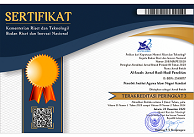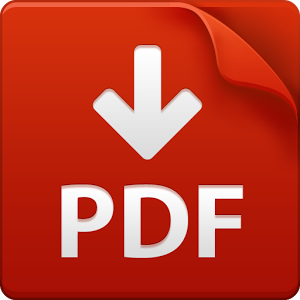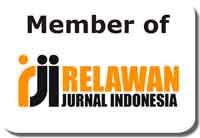DINAMIKA DAN TERAPAN METODOLOGI TAFSIR KONTEKSTUAL
Abstract
Keywords
Full Text:
PDFReferences
Abdin, M. Zainal. “Ketika Hermeneutika Menggantikan Tafsir Al-Qur’an.” Republika, June 24, 2005.
Abu Ishaq, Ahmad bin Muhammad bin Ibrahim Al-Tsa’labi. Al-Kasyfu Wa Al-Bayan ’an Tafsi Al-Qur’an. Edited by Al-Imam Ubay Muhammad ’Asyur. Cet. I. Beirut: Dar Ihya’ Al-Tuts Al-’Arabi, 2002.
Al-Gharnaty, Abu Al-Qasim Ibnu Juzayy Al-Kalbi. Al-Tashil Li ’Ulum Al-Tanzil. Edited by Abdullah Khalidi. Cet. I. Beirut: Syarikah Dar Arkam bin Abi Arkam, 1416.
Al-Maturidi, Abu Manshur. Tafsir Al-Maturidi. Edited by Majdi Baslum. Cet. I. Beirut: Dar Kutub Al-’Ilmiah, 2005.
Al-Mawardi, Abu Al-Hasan bin Muhammad Al-Bashri Al-Baghdadi. Tafsir Al-Mawardi: Nukat Wa Al-’Uyun. Edited by Al-Sayyid Ibn Abd Al-Maqshud. Beirut: Dar Kutub Al-’Ilmiah, n.d.
Al-Nisaburi, Abu Al-Hasan ’Ali bin Muhammad. Al-Wajiz Fi Tafsir Kitab Al-’Aziz. Edited by Sfwan Adnan Dawudi. Beirut: Dar Al-Qalam, 1415.
Al-Nu’mani, Abu Hafsh Al-Siraj Al-Ddin Al-Dimasyki. Al-Lubab Fi ’Ulum Al-Kitab. Edited by Ahmad Al-Syaikh ’Adil Ahamad Abd Maujud. Cet. I. Beirut: Dar Kutub Al-’Ilmiah, 1998.
Al-Qurthubi, Abu Abdullah Muhammad bin Ahmad Syamsuddin. Al-Jami’ Li Ahkam Al-Qur’an: Tafsir Al-Qurthubi. Cet. II. Kairo: Dar Kitab Al-Mishriyah, 1964.
Al-Sabt, Khalid Ibnu ’Utsman. Qawa’id Al-Tafsir Jam’an Wa Dirasatan. Cet. I. Kairo: Dar Ibn ’Affan, 1997.
Al-Tirmidzi, Muhammad bin ’Isa. Sunan Al-Tirmidzi. Edited by Ahmad Muhammad Syakir. Cet. II. Kairo: Maktabah Mushtafa Al-Bani Al-Halabi, 1975.
Engineer, Asghar Ali. Pembebasan Perempuan. Cet. II. Yogyakarta: LKIS, 2007.
Faiz, Fahruddin. Hermeneutika Al-Qur’an: Tema-Tema Kontroversial. Cet. I. Yogyakarta: Kalimedia, 2015.
Farihanto, Muhammad Najih. “The Integrity of Knowledge and Charity: The Implementation of Surah Al Ma’un in Corporate Social Responsibility at Business Unit of Muhammadiyah (Case Studies at PKU Muhammadiyah Yogyakarta Hospital).” In The Role of Educators & Students in Building Integrity, edited by Agus Suwandono, Sukron Kamil, Pheni Chalid, Irwansyah, Jamin Ginting, and Ries Wulandari, 1:758–770. Cet. I. Jakarta: Tiri–Integrity Action, 2013.
Hasbiyallah, Muhammad. “Paradigma Tafsir Kontekstual: Upaya Membumikan Nilai-Nilai Al- Qur’an.” Al-Dzikra 12, no. 1 (2018): 21–50.
Ilyas, Hamim. “Hermeneutika Al-Qur’an: Studi Tafsir Modern.” Tarjih 6, no. 1 (2003): 52–61.
Matswah, Akrimi. “Contextual Qur’anic Exegeses of the Sura of Al-Mā’idah/5: 51: A Study on the Ayah Concerning the Prohibition of Making a Non-Muslim a Leader.” Suhuf 9, no. 1 (2016): 15–34.
Palmer, E. Richard. Hermeneutics: Interpretation Theory in Schleirmacher, Dilthey, Heidegger, and Gadamer. Evanston: Nortwestern University Press, 1967.
Rakhman, Alwi Bani. “Teologi Sosial; Keniscayaan Keberagamaan Yang Islami Berbasis Kemanusiaan.” Esensial 14, no. 2 (2013): 161–182.
Rohmah, Lailatu. “Hermeneutika Al-Qur’an: Studi Atas Metode Penafsiran Nasr Hamid Abu Zaid.” HIKMAH Journal of Islamic Studies XII, no. 2 (2016): 223–244.
Rohmana, Jajang A. “Tafsīr Filantropīyat Al-Qur’ān Al-Karīm Fī Indonesia Musāhamat Tafsīr Sūrat Al-Mā‘ūn Li Kiai Al-Ḥāj ‘Abd Al-Ḥalīm (1887-1962).Pdf.” Studia Islamica 25, no. 3 (2018): 589–638.
Romdhoni, Ali. “Semiotika Morris Dan Tradisi Penafsiran Al-Qur’an: Sebuah Tawaran Tafsir Kontekstual.” Al-A’raf 13, no. 2 (2016): 149–166.
Sadik, M. “Al-Quran Dalam Perdebatan Pemahaman Tekstual Dan Kontekstual.” Jurnal Hunafa 6, no. 1 (2009): 53–68.
Saeed, Abdullah. Interprething the Qur’an: Towards a Contemporary Approach. New York: Routledge, 2006.
Setiawan, Asep. “Studi Kritis Atas Teori Ma’na-Cum-Maghza Dalam Penafsiran Al-Qur’an.” Kalimah 14, no. 1 (2016): 219–244.
Shihab, Quraish. Tafsîr Al-Misbâh; Pesan, Kesan Dan Keserasian Al-Qur`An. Jakarta: Lentera Hati, 2002.
———. Tafsir Al-Mishbah: Pesan, Kesan Dan Keserasian Al-Qur’an. Vol. II. Jakarta: Lentera Hati, 2002.
Supena, Ilyas. Hermeneutika Al-Qur’an. Cet. I. Yogyakarta: Ombak, 2014.
Suryadilaga, Muhammad Alfatih. “Hadis Dan Perannya Dalam Tafsir Kontekstual Perspektif Abdullah Saeed.” Mutawatir Jurnal Keilmuan Tafsir Hadis 5, no. 2 (2015): 325–342.
Syamsuddin, Sahiron. Heremeneutika Dan Pengembangan Ulumul Qur’an. Cet. II. Yogyakarta: Nawasea Press, 2017.
Zulaiha, Eni. “Tafsir Kontemporer: Metodologi, Paradigma Dan Standar Validitasnya.” Wawasan: Jurnal Ilmiah Agama dan Sosial Budaya 2, no. 1 (2017): 81–94.
DOI: http://dx.doi.org/10.31332/ai.v14i1.1177
Copyright (c) 2019 Al-Izzah: Jurnal Hasil-Hasil Penelitian

This work is licensed under a Creative Commons Attribution-NonCommercial-ShareAlike 4.0 International License.










